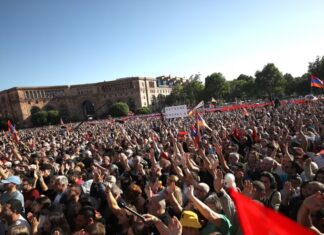By Aro Hovsepyan
As an Armenian-American, I can take much pride in our community’s achievements: We have built vibrant communities with wonderful churches, schools and cultural centers that successfully pass on our values and identity to younger generations.
In our efforts to preserve our particularism, we might have nevertheless missed out on the PR and political opportunities offered by our broader Christian faith and identity. We all know that our nation was history‘s first to accept Christ and Christianity. Yet how many of our non-Armenian Christian neighbors, priests and pastors are aware of this spiritual milestone?
Cultivated non-Armenians are often aware of the Armenian Genocide. But how many know that this genocide was the culmination of centuries of Islamic persecution and oppression? In fact, I am certain that hundreds of millions of Christians would share our pain and pride if they learned about the trials and triumphs of their Armenian brethren.
Diaspora Armenians and particularly Armenian-Americans need to build more bridges to other Christian communities. We especially need to engage with religious leaders able and willing to influence policymakers so that they actively safeguard the lives and rights of persecuted Christians in the Caucasus region.
On May 8, a fascinating article appeared in the Armenian daily Aravot. Its author, the Berlin-based political analyst Alexander Stepanyan, urges Armenians and Armenian-Americans to approach Evangelical Christian leaders in America and convince them to leverage their relationships and influence in Israel to deter the Jewish state from giving Ilham Aliyev a blank check to attack Armenia with the weapons it supplies to Azerbaijan.










